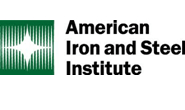Market Data

November 16, 2021
Infrastructure Bill a Boon for American-Made Steel: AISI
Written by Tim Triplett
When President Biden signed his long-awaited infrastructure bill, he did far more than set out to make America’s roads and bridges safer. The $1 trillion measure promises to be a boon to the environment, and the steel industry in particular.
The American Iron and Steel Institute (AISI) lauded the Infrastructure Investment and Jobs Act. “Modernizing our roads and bridges, ports and waterways, water infrastructure, the electric grid, and investing in electric vehicle systems, is critical to our safety and security. We applaud the fact that the new law, and the executive order implementing it, have a strong focus on enhancing U.S. competitiveness and using American-made products – including by using American-made steel, which is cleaner and more sustainable than steel made in the other leading steel-producing countries,” AISI President and CEO Kevin Dempsey said in a statement.
The announcement also calls for the building of more resilient infrastructure to combat the climate crisis, Dempsey said. “Steel’s strength and durability make it an essential component for building a more sustainable future for our country, including through increased investment in clean energy production and other 21st century infrastructure innovations.”
AISI estimates that the infrastructure bill authorizes funding for $850 billion in steel-containing infrastructure, which equates to as much as 40-45 million tons of steel demand in total. But that figure drops to $450 billion – or 20-25 million tons of new steel demand – once existing trust funds are taken into account, a spokeswoman for the group said.
The figures above are total steel demand, not per year.







